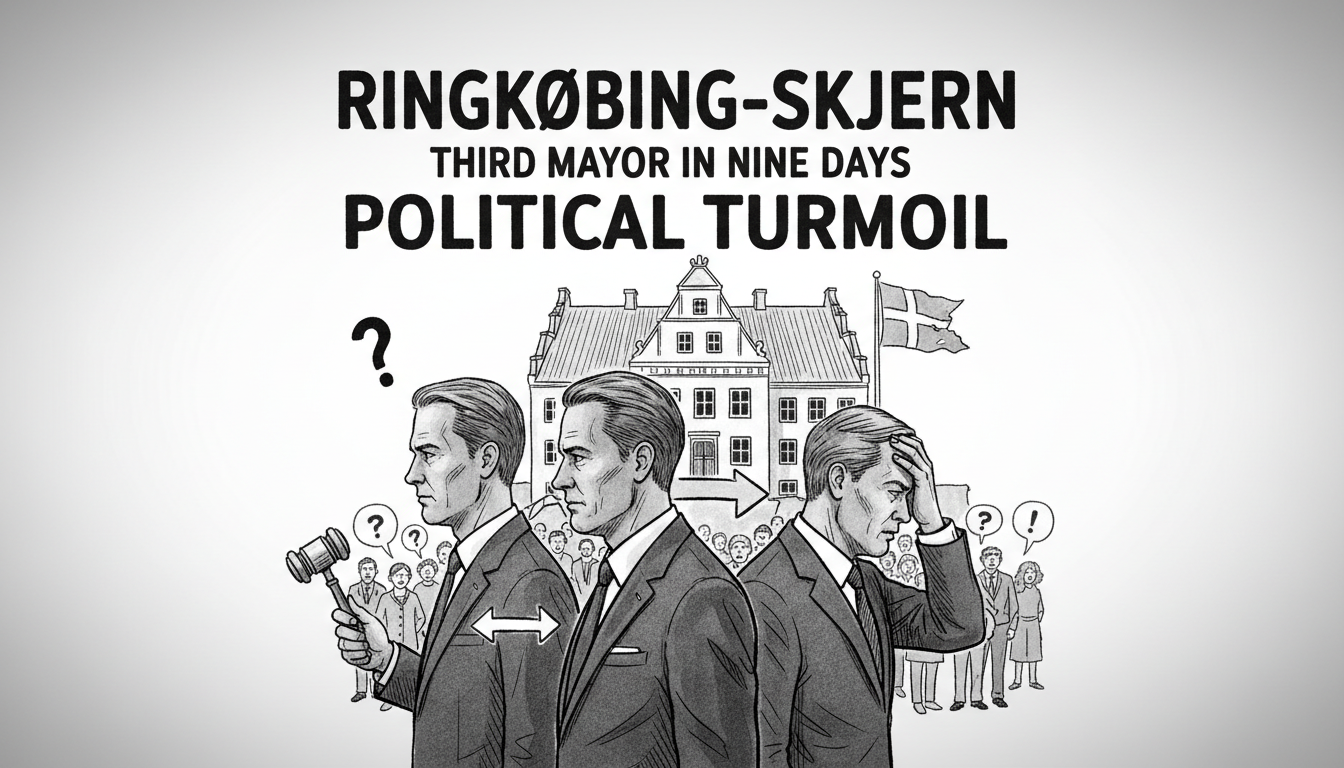A small Danish municipality has become the center of political instability as citizens watch their leadership change three times within nine days. Ringkøbing-Skjern's latest mayor, Lone Andersen from the Venstre party, openly admits feeling confused about the rapid political developments. She described the situation as turbulent during recent negotiations.
The political drama began when a coalition of Conservative People's Party, Social Democrats, Venstre, and Socialist People's Party presented Lennart Quist as mayor. This followed another brief leadership period by Mads Fuglede from the Denmark Democrats. Now the same coalition parties have shifted support to Lone Andersen, creating what locals call a confusing political circus.
Andersen explained the reasoning behind her selection. The negotiating partners consistently emphasized that a larger party should hold the mayor position. Since Venstre received the third-highest votes locally and represents the largest party in the municipality, she became the compromise candidate. The new mayor hopes to expand the coalition to include Christian Democrats and Denmark Democrats, who together control 14 mandates.
Local residents express growing frustration with the political instability. Baker Thomas Capion Larsen calls the situation absurd, saying politicians cannot agree on basic leadership. Clinic assistant Asta Sørensen echoes this sentiment, noting that such instability damages public trust in elected officials. Many residents doubt the new mayor will last long, with some speculating about a fourth leadership change.
This political instability reflects broader challenges within Danish local governance. Municipalities across Denmark face increasing pressure to form stable coalitions while addressing complex integration and welfare issues. The frequent leadership changes in Ringkøbing-Skjern demonstrate how fragile political agreements can become when multiple parties compete for influence.
The situation highlights important questions about political representation in Denmark's consensus-based system. When coalition building becomes this volatile, essential social services and integration programs can suffer from inconsistent leadership. This matters particularly for municipalities managing diverse populations and implementing national social policies at local levels.
Danish welfare systems depend heavily on stable local governance to deliver services effectively. The current turmoil in Ringkøbing-Skjern risks disrupting everything from education programs to elderly care services. Municipal social centers coordinating integration efforts need consistent leadership to maintain effective community programs.
Despite the uncertainty, Andersen remains focused on building broader political support. She continues meetings with Christian Democrats and Denmark Democrats to secure their participation in a wider coalition. The final decision about her mayoral term will come in early December, leaving several weeks of potential political maneuvering.
The repeated leadership changes in this West Jutland municipality offer valuable insights into contemporary Danish politics. They show how local power struggles can undermine public confidence while demonstrating the complex negotiations required in multi-party systems. As Denmark continues refining its integration policies and social welfare approaches, stable local leadership becomes increasingly crucial for successful implementation.

